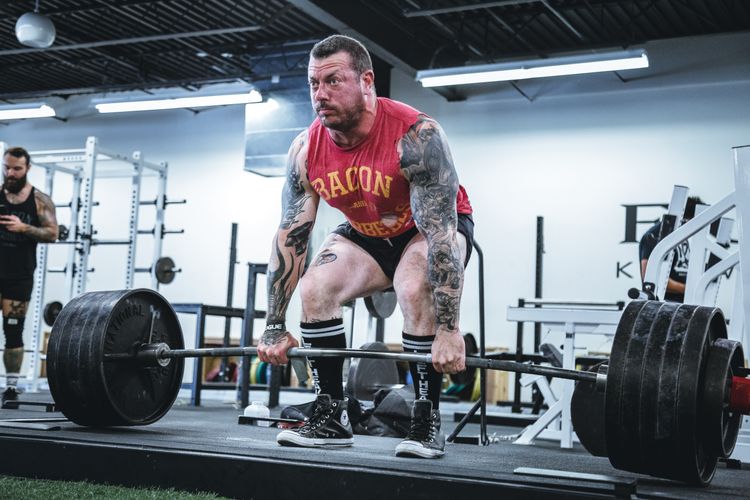How Much Does a Strongman Weigh?

Demystifying the Misconception: The Strongman Weight Paradigm
The world of strongman sports, much like any other competitive arena, is filled with various misconceptions, myths, and legends. One commonly held belief revolves around the weight of a strongman. Let's clear the air on this - the question isn't simply "how much does a strongman weigh?" but rather, it should be "how much do you need to weigh to be a strongman?"
The answer to this is surprisingly nuanced. The fact of the matter is that there is no one-size-fits-all when it comes to strongman weight. Contrary to popular belief, there are no strict weight limits or requirements in strongman competitions. The strength and endurance of a strongman are more consequential than their weight.
However, it's indisputable that weight can provide a certain level of advantage. The additional mass can aid in various strongman events, such as the Atlas Stones, where gravitational force works to your benefit. But weight alone cannot secure a win; it's the synergy of power, endurance, technique, and mental fortitude that propels a strongman to victory.
Strongman Weight: Hallmarks of the Sport
Notable strongmen like Eddie Hall and Thor provide insights into this domain. The Eddie Hall weight record stands at a remarkable 196 kg (432 lbs), during his peak training period. This weight, coupled with his intensive training and determined mindset, allowed him to set the world record for the heaviest deadlift.
In contrast, Hafthor Bjornsson, known popularly as Thor, carries a weight of around 205 kg (452 lbs). Known for his towering height and incredible strength, Thor used his weight to his advantage in several strongman events, most notably when he set the world record in the deadlift, surpassing Eddie Hall's previous record.
- Eddie Hall Weight: 196 kg (432 lbs)
- Thor Weight: 205 kg (452 lbs)
It's important to note that the weights of Eddie Hall and Thor are not benchmarks for aspiring strongmen. They are individual examples of how weight was leveraged in their personal journey towards strongman success.
Weighing the Benefits
The question of "weight benefits in strongman" sports is closely tied to the types of events in the competition. Certain strongman events like the Tire Flip or the Yoke Walk can be easier for heavier athletes due to the added momentum and stability provided by their mass.
On the flip side, too much weight can prove detrimental, as it may affect mobility and stamina in events like the Farmer's Walk or the Sandbag Run. Therefore, the "ideal" strongman weight is largely dependent on the specific set of skills and abilities of the individual, and the nature of the events in the competition.
Finding the Balance
The beauty of strongman sports is that it accommodates a wide range of body types and weights. From the lighter, more mobile athletes, to the heavier, powerhouse figures, the stage is open to all. Your weight, whether you're on the lighter or heavier side, doesn't restrict you from the strongman arena.
Remember, strongman sports are about harnessing and showcasing your strength in unique and challenging ways. Don't let the scale define your potential. Embrace your individual strengths, work on your weaknesses, and let your performance do the talking. The weight will follow suit.





